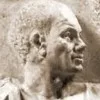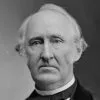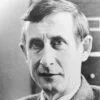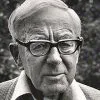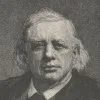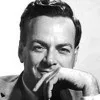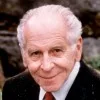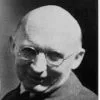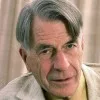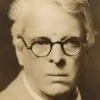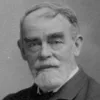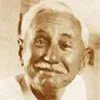I cannot say for sure when my reliable ideas about God began to slip away, but the big chest I used to keep them in is smaller than a shoebox now. Most of the time, I feel so ashamed about this that I do not own up to it unless someone else mentions it first. Then we find a quiet place where we can talk about what it is like to feel more and more devoted to a relationship that we are less and less able to say anything about.
Barbara Brown Taylor (b. 1951) American minister, academic, author
Learning to Walk in the Dark, ch. 7 (2014)
(Source)
Quotations about:
uncertainty
Note not all quotations have been tagged, so Search may find additional quotes on this topic.
Unlike a well-defined, precise game like Russian roulette, where the risks are visible to anyone capable of multiplying and dividing by six, one does not observe the barrel of reality.
Nassim Nicholas Taleb (b. 1960) Lebanese-American essayist, statistician, risk analyst, aphorist
Fooled by Randomness, Part 1, ch. 2 (2001)
(Source)
In the great debate that has raged for centuries about what, if anything, happens to you after death, be it heaven, hell, purgatory or extinction, one thing has never been in doubt — that you would at least know the answer when you were dead.
Gordon Way was dead, but he simply hadn’t the slightest idea what he was meant to do about it. It wasn’t a situation he had encountered before.Douglas Adams (1952-2001) English author, humourist, screenwriter
Dirk Gently’s Holistic Detective Agency, ch. 9 (1987)
(Source)
The person you are most afraid to contradict is yourself.
Nassim Nicholas Taleb (b. 1960) Lebanese-American essayist, statistician, risk analyst, aphorist
The Bed of Procrustes: Philosophical and Practical Aphorisms, “Preludes” (2010)
(Source)
Will the gods grant a morrow for to-day?
No mortal can declare;
Give! all thou giv’st with open hand away
Escapes thy greedy heir.
Once thou art dead, once Minos on his bench
Thy doom for thee hath writ,
Birth, eloquence, devotion, nought can wrench
Thy spirit from the pit,
Torquatus!
[Quis scit an adiciant hodiernae crastina summae
tempora di superi?
Cuncta manus avidas fugient heredis amico
quae dederis animo.
Cum semel occideris et de te, splendida, Minos
fecerit arbitria,
non, Torquate, genus, non te facundia, non te
restituet pietas.]Horace (65-8 BC) Roman poet, satirist, soldier, politician [Quintus Horatius Flaccus]
Odes [Carmina], Book 4, # 7, l. 17ff (4.7.17-24) (23 BC) [tr. Gladstone (1894)]
(Source)
(Source (Latin)). Alternate translations:Who knows if Iove unto thy life's past score
Will adde one morning more?
When thou art dead, and Rhadamanthus just
Sentence hath spoke thee dust,
Thy blood, nor eloquence can ransome thee,
No nor thy piety.
[tr. Fanshaw; ed. Brome (1666)]Who knows if stubborn Fate will prove so kind,
And joyn to this another day?
What e're is for thy greedy Heir design'd,
Will slip his Hands, and fly away:
When thou art gone, and Minos Sentence read,
Torquatus there is no return,
Thy Fame, nor all thy learned Tongue can plead,
Nor goodness shall unseal the Urn.
[tr. Creech (1684)]Can Hope assure you one more day to live
From powers above?
You rescue from your heir whate'er you give
The self you love.
When life is o'er, and Minos has rehearsed
The grand last doom,
Not birth, nor eloquence, nor worth, shall burst
Torquatus' tomb.
[tr. Conington (1872)]Who knows whether the gods above will add to this day’s reckoning the space of to-morrow? Every thing, which you shall indulge to your beloved soul, will escape the greedy hands of your heir. When once, Torquatus, you shall be dead, and Minos shall have made his awful decisions concerning you; not your family, not you eloquence, not your piety shall restore you.
[tr. Smart/Buckley (1853)]Who knows, if they who all our Fates control,
Will add a morrow to thy brief to-day?
Then think of this, -- What to a friendly soul
Thy hand doth give shall 'scape thine heir's rapacious sway.
When thou, Torquatus, once hast vanish'd hence,
And o'er thee Minos' great decree is writ,
Nor ancestry, nor fire-lipp'd eloquence,
Nor all thy store of wealth to give thee back were fit.
[tr. Martin (1864)]Who knows if the gods will yet add a to-morrow
To the sum of to-day?
Count as saved from an heir's greedy hands all thou givest
To that friend -- thine own self.
When once dead, the resplendent tribunal of Minos
Having once pronounced doom,
Noble birth, suasive tongue, moral worth, O Torquatus,
Reinstate thee no more.
[tr. Bulwer-Lytton (1870)]Who can tell whether the Gods above will add an existence for us during to-morrow to that of to-day? All, however, thou mayest indulge thyself in will escape the greedy grasp of thy heir. When once thou hast fallen, and Minos shall have passed his impartial judgment upon thee, neither thy pedigree, Torquatus, thine eloquence, nor thy goodness, will restore thee back to earth.
[tr. Elgood (1893)]Who can tell whether the Gods will add the hours of tomorrow
On to the sum of to-day?
All will escape your heir's greedy clutches, which with a friendly
Mind you have spent in your life.
For, when once thou hast died, and over thee Minos in judgment
Hath made his grand last award,
Then neither birth shall avail, Torquatus; nor eloquence bring thee
Back, nor thy fear of the Gods.
[tr. Phelps (1897)]Who knoweth if the gods above may add to-morrow's time
To this day's count?
All that thou givest to thy soul's delighting will escape
An heir's greedy hands.
When once thou'rt dead, and Minos o'er thee shall have made
August decision.
Not, O Torquatus, not thy birth, or flow of word, not piety,
Will reinstate thee.
[tr. Garnsey (1907)]Who knows that Heaven to this day's gift will please
To-morrow's sun to lend?
And all thy goods a greedy heir will seize,
Save what thyself did spend.
Once thou art dead, and Minos' high decree
Shall speak to seal thy doom
Though noble, pious, eloquent thou be,
These snatch not from the tomb.
[tr. Marshall (1908)]Who knows whether the gods will add to-morrow’s time to the sum of today ? All things which thou grantest to thine own dear soul, shall escape the greedy clutches of thine heir. When once thou hast perished and Minos has pronounced on thee his august judgment, not family, Torquatus, nor eloquence, nor righteousness shall restore thee again to life.
[tr. Bennett (Loeb) (1912)]Who knows whether the gods who reign above
Add a new day's span to the sum of this?
Live while you live; that which the soul you love,
Your self, enjoys, your greedy heir will miss.
Once you are dead, once Minos, judge of men,
Has fixed by doom august your destiny,
Not rank, Torquatus, shall restore you then;
Not eloquence; not even piety.
[tr. Mills (1924)]Who knows whether the all-high gods intend an addition
Made to the sum of today?
Give to your own dear self: that gift is the only possession
Fingers of heirs cannot grasp.
Once you are dead, Torquatus, and Minos delivers his august
Verdict upon your affairs,
No blue blood, no good deeds done, no eloquent pleading
Ever shall conjure you back.
[tr. Michie (1963)]Who knows if the gods will add tomorrow's
Hours to your time today?
Whatever you give yourelf, here, now,
No greedy heir can clutch at.
Torquatus, once you're buried, once
The Lord of Death has judged you,
Nothing will bring you back, no ancient
Name, no noble words, no one's love.
[tr. Raffel (1983)]Who knows whether tomorrow the gods will have
Anything more to give than they have given?
What you can give to your own dear heart today
Will not fall into the clutch of your heir tomorrow.
Torquatus, once you've died and Minos the judge
Has spoken his words down there, then neither rank
Nor eloquence nor virtue -- none of these --
Can ever bring you back to life again.
[tr. Ferry (1997)]Who knows whether the celestial gods will add tomorrow’s time to the sum of today’s. All which you bestow upon your very own soul escapes the avid hands of your heir. Once you are dead and Minos has pronounced on you his solemn judgment, neither your noble origin, Torquatus, nor your eloquence, nor your piety will bring you back to life.
[tr. Alexander (1999)]Who knows whether the gods above will add tomorrow’s hours
to the total of today?
All those you devote to a friendly spirit will escape from
the grasping hands of your heirs.
When once you’re dead, my Torquatus, and Minos pronounces
his splendid judgement on you,
no family, no eloquence, no righteousness even,
can restore you again.
[tr. Kline (2015)]
“It’s just Eeyore,” said Piglet. “I thought your Idea was a very good Idea.”
Pooh began to feel a little more comfortable, because when you are a Bear of Very Little Brain, and you Think of Things, you find sometimes that a Thing which seemed very Thingish inside you is quite different when it gets out into the open and has other people looking at it.A. A. Milne (1882-1956) English poet and playwright [Alan Alexander Milne]
House at Pooh Corner, ch. 6 “Eeyore Joins the Game” (1928)
(Source)
The Ten Commandments that, as a teacher, I should wish to promulgate, might be set forth as follows:
- Do not feel absolutely certain of anything.
- Do not think it worth while to proceed by concealing evidence, for the evidence is sure to come to light.
- Never try to discourage thinking for you are sure to succeed.
- When you meet with opposition, even if it should be from your husband or your children, endeavour to overcome it by argument and not by authority, for a victory dependent upon authority is unreal and illusory.
- Have no respect for the authority of others, for there are always contrary authorities to be found.
- Do not use power to suppress opinions you think pernicious, for if you do the opinions will suppress you.
- Do not fear to be eccentric in opinion, for every opinion now accepted was once eccentric.
- Find more pleasure in intelligent dissent that in passive agreement, for, if you value intelligence as you should, the former implies a deeper agreement than the latter.
- Be scrupulously truthful, even if the truth is inconvenient, for it is more inconvenient when you try to conceal it.
- Do not feel envious of the happiness of those who live in a fool’s paradise, for only a fool will think that it is happiness.
Bertrand Russell (1872-1970) English mathematician and philosopher
“The Best Answer to Fanaticism: Liberalism,” New York Times Magazine (1951-12-16)
(Source)
Sometimes referred to as "The Liberal Decalogue." Later printed in The Autobiography of Bertrand Russell, Vol. 3 (1969).
But so long as men are not trained to withhold judgment in the absence of evidence, they will be led astray by cocksure prophets, and it is likely that their leaders will be either ignorant fanatics or dishonest charlatans. To endure uncertainty is difficult, but so are most of the other virtues. For the learning of every virtue there is an appropriate discipline, and for the learning of suspended judgment the best discipline is philosophy.
Bertrand Russell (1872-1970) English mathematician and philosopher
“Philosophy for Laymen,” Universities Quarterly (1946-11)
(Source)
Reprinted in Unpopular Essays, ch. 2 (1951).
Nor need we be surprised that men so often embrace almost any doctrines, if they are proclaimed with a voice of absolute assurance. In a universe that we do not understand, but with which we must in one way or another somehow manage to deal; and aware of the conflicting desires that clamorously beset us, between which we must choose, and which we must therefore manage to weigh, we turn in our bewilderment to those who tell us that they have found a path out of the thickets and possess the scales by which to appraise our needs. Over and over again such prophets succeed in converting us to unquestioning acceptance; there is scarcely a monstrous belief that has not had its day and its passionate adherents, so eager are we for safe footholds in our dubious course.
Learned Hand (1872-1961) American jurist
Speech (1955-01-29), “A Fanfare for Prometheus,” American Jewish Committee annual dinner, New York City
(Source)
Fear comes from uncertainty. When we are absolutely certain, whether of our worth or worthlessness, we are almost impervious to fear. Thus a feeling of utter unworthiness can be a source of courage.
Eric Hoffer (1902-1983) American writer, philosopher, longshoreman
The Passionate State of Mind, Aphorism 87 (1955)
(Source)
Since Joys are so uncertain; take Gladness when it comes.
Thomas Fuller (1654-1734) English physician, preacher, aphorist, writer
Introductio ad Prudentiam, Vol. 1, # 101 (1725)
(Source)
If in the following pages I seem to express myself dogmatically, it is only because I find it very boring to qualify every phrase with an ‘I think’ or ‘to my mind.’ Everything I say is merely an Opinion of my own. The reader can take it or leave it. If he has the patience to read what follows he will see that there is only one thing about which I am certain, and this is that there is very little about which one can be certain.
W. Somerset Maugham (1874-1965) English novelist and playwright [William Somerset Maugham]
The Summing Up, ch. 5 (1938)
(Source)
This basic clash of ideas and wills is but one of the forces reshaping our globe — swept as it is by the tides of hope and fear, by crises in the headlines today that become mere footnotes tomorrow. Both the successes and the setbacks of the past year remain on our agenda of unfinished business. For every apparent blessing contains the seeds of danger — every area of trouble gives out a ray of hope — and the one unchangeable certainty is that nothing is certain or unchangeable.
Still you say, the young man has the hope of long life — a hope which the old cannot have. That hope is sheer wishful thinking, for what is more irrational than to count the uncertain as certain, the false as true? But the old man has nothing to look forward to at all. Even so, he is in better sort than the young, for he has obtained what the young only hope for: the young want to live a long life; the old have lived it.
[At sperat adulescens diu se victurum, quod sperare idem senex non potest. Insipienter sperat; quid enim stultius quam incerta pro certis habere, falsa pro veris? At senex ne quod speret quidem habet. At est eo meliore condicione quam adulescens, quoniam id quod ille sperat hic consecutus est: ille volt diu vivere, hic diu vixit.]
Marcus Tullius Cicero (106-43 BC) Roman orator, statesman, philosopher
De Senectute [Cato Maior; On Old Age], ch. 19 / sec. 68 (19.68) (44 BC) [tr. Copley (1967)]
(Source)
(Source (Latin)). Alternate translations:But ye may saye that the man adolescent & yong hopith that he shall lyve longe & aftir that a man is olde he may not have such an hope. Therfor I answere you that the yong man hopith foliously if by cause of his yong age he wenith to live long, for he is not certayn therof nor knowith not the trouthe. Now ther is nothyng more foly thene is for to have & holde the doubtuose thyngys as certayn & the fals as true & if ye oppose agenst olde age that the olde man hath nothyng in hym whereby he may hope to lyve more, I answere you, Scipion & Lelius, that by this thyng is bettir the condicion & the astate of the olde man than of the yong man, for the yong man will lyve long & the olde man hath lyved long.
[tr. Worcester/Worcester/Scrope (1481)]But a young man hopeth to live long, which an old man may not look to do. He truly feedeth himself with a vain and a foolish, hope. For what merer folly can there be, than to accompt and repute things which be doubtful and uncertain, for infallible and certain, and things that are false, for true? An old man hath nothing to hope for; but he is therefore in far better state and case than is a young man, for he hath already enjoyed and obtained that, which the young man doth but hope for. The one desireth to live long, the other hath already lived long.
[tr. Newton (1569)]But the young man hopes to live long, which the old man cannot. He hopes foolishly; for what is greater folly, then to account uncertain things for certain, false for true? The old man hath nothing to hope for more; therefore he is in better state then the former, seeing that what the other wisheth for, he hath obtained already; the young man would live long, the old man hath lived long.
[tr. Austin (1648), ch. 21]But vigorous Youth may his gay thoughts erect
To many years, which Age must not expect,
But when he sees his airy hopes deceiv'd,
With grief he saies, who this would have believ'd?
We happier are then they, who but desir'd
To possess that, which we long since acquir'd.
[tr. Denham (1669)]But Youth, you'll say perhaps, may live in Hopes of Length of Days, when we are deprived even of all Hope. A childish Hope this indeed! To hold Uncertainties for Certainties, and Falsity for Truth! Old Age, you say, has not even Hope for its Relief; but, even in that Respect, is it not far preferable to Youth, in being actually possessed of what the other only hopes for? Long Life is sure on the one side, and only wished for on the other.
[tr. Hemming (1716)]But the young Man is in Hopes of Living long, which the Old cannot. I must tell him he hopes foolishly; for, can there be a greater Instance of Folly than to make sure of Uncertainties; or embrace Falsities for Truth? The Old Man has nothing more to hope for; then he is in a better State than the Young one, since what this hopes for, the other has already attain'd: The one is in Hopes of Living long, the other has done it.
[tr. J. D. (1744)]It may however be said, perhaps, that Youth has Room at least to hope they have Length of Life before them, which in Old Men would be vain. But foolish is that Hope: For what can be more absurd, than to build on utter Uncertainties, and account on that for sure, which probably may never happen? And to what is alleged, that the Old Man has no Room lest for Hope, I say, Just so much the happier is his Condition, than that of the Young; because he has already attained, and is sure of what the other only wishes and hopes for: The one wishes to live long, the other is at the End of that Wish, he has got it; for he has lived long already.
[tr. Logan (1744)]It will be replied, perhaps, that "youth may at least entertain the hope of enjoying many additional years; whereas an old man cannot rationally encourage so pleasing an expectation." But is it not a mark of extreme weakness to rely upon precarious contingencies, and to consider an event as absolutely to take place, which is altogether doubtful and uncertain? But admitting that the young may indulge this expectation with the highest reason, still the advantage evidently lies on the side of the old; as the latter is already in possession of that length of life which the former can only hope to attain.
[tr. Melmoth (1773)]But a young man hopes that he shall live long; which same thing an old man cannot hope. He hopes absurdly. For what is sillier than to hold uncertainties for certainties, the false for true? An old man has not even what he may hope; but he is by that in a better condition than the young man, since that which the former hopes for, the latter has attained. The former wishes to live long; the latter has lived long.
[Cornish Bros. ed. (1847)]Yet a young man hopes that he will live a long time, which expectation an old man cannot entertain. His hope is but a foolish one: for what can be more foolish than to regard uncertainties as certainties, delusions as truths? An old man indeed has nothing to hope for; yet he is in so much the happier state than a young one; since he has already attained what the other is only hoping for. The one is wishing to live long, the other has lived long.
[tr. Edmonds (1874)]But, it is said, the young man hopes to live long, while the old man can have no such hope. The hope, at any rate, is unwise; for what is more foolish than to take things uncertain for certain, false for true? Is it urged that the old man has absolutely nothing to hope? For that very reason he is in a better condition than the young man, because what the youth hopes he has already obtained. The one wishes to live long; the other has lived long.
[tr. Peabody (1884)]Yes, you will say; but a young man expects to live long; an old man cannot expect to do so. Well, he is a fool to expect it. For what can be more foolish than to regard the uncertain as certain, the false as true? "An old man has nothing even to hope." Ah, but it is just there that he is in a better position than a young man, since what the latter only hopes he has obtained. The one wishes to live long; the other has lived long.
[tr. Shuckburgh (1895)]But you will say the young
Have hope of life, which is to us denied.
A foolish hope. For what more foolish is
Than where no surety is to think things sure,
Where all is doubtful to believe them fixed?
Granted the old man cannot even hope:
'Tis all the better since he has attained
To what the young man only hopes to gain:
The one desires long life, the other's lived.
[tr. Allison (1916)]But, you may say, the young man hopes that he will live for a long time and this hope the old man cannot have. Such a hope is not wise, for what is more unwise than to mistake uncertainty for certainty, falsehood for truth? They say, also, that the old man has nothing even to hope for. Yet he is in better case than the young man, since what the latter merely hopes for, the former has already attained; the one wishes to live long, the other has lived long.
[tr. Falconer (1923)]There is a crucial difference between a young man and an old one: the one hopes for a long life yet to come, and the other knows that his time is nearly up. But a hope is only a hope: what is more foolish than to confuse what is uncertain with what is certain, and what is false with what is true? The young man who lives in a state of great expectations is much worse off than the old man who looks forward to nothing. One can only dream of what the other has accomplished: one wants to live a long time, but the other already has.
[tr. Cobbold (2012)]But, you say, that is not the point. The point is that a young person can reasonably hope to live a long time and an old one cannot. What an unwise hope. I mean, what is more follish than to value uncertainty above certainty? Look at life this way, what the young person only hopes for (and the hope is uncertain, as we have seen), the old person already has. The one hopes to live a long time, the other has already done so.
[tr. Gerberding (2014)]But they say a young man hopes in a long lease
Of life while an old man awaits its surcease.
Taking certain for uncertain is a wish,
Like taking false for true, completely foolish.
But, they add, even at the end of the rope
An old man is in a better shape than a young man
For he has already fulfilled his life’s hope.
One wants the long life the other had in full measure,
ut dear gods what is “long” in man’s nature?
[tr. Bozzi (2015)]But you may argue that young people can hope to live a long time, whereas old people cannot. Such hope is not wise, for what is more foolish than to mistake something certain for what is uncertain, or something false for what is true? You might also say8 that an old man has nothing at all to hope for. But he in fact possesses something better than a young person. For what youth longs for, old age has attained. A young person hopes to have a long life, but an old man has already had one.
[tr. Freeman (2016)]But the young person hopes to live for a long time, a very hope which the old person cannot hold. They hope unwisely for what is more foolish than to take uncertainty for certainty and falsehood for truth. They claim also that the old person has nothing to hope for. But the elderly are in a better place than the young because the young merely hope for what the elderly have obtained and the one wishes to live long, while the other has already done so.
[tr. @sentantiq (2021)]
Every human being, like every animal, wants to live in what is felt to be a safe environment — an environment where you won’t be exposed to unexpected peril. Now, when a man tells you that something you’ve always believed was in fact not true, it gives you a frightful shock and you think, “Oh! I don’t know where I am. When I think I’m planting my foot upon the ground, perhaps I’m not.” And you get into a terror.
Bertrand Russell (1872-1970) English mathematician and philosopher
Interview by Woodrow Wyatt, BBC TV (1959)
On resistance to scientific discovery.
Collected in Bertrand Russell's BBC Interviews (1959) [UK] and Bertrand Russell Speaks His Mind (1960) [US]. Reprinted (abridged) in The Humanist (1982-11/12), and in Russell Society News, #37 (1983-02).
Distrust, and darkness, of a future state,
Make poor Mankind so fearful of their Fate.
Death, in itself, is nothing; but we fear
To be we know not what, we know not where.
I think nobody should be certain of anything. If you’re certain, you’re certainly wrong, because nothing deserves certainty, and so one ought always to hold all one’s beliefs with a certain element of doubt and one ought to be able to act vigorously in spite of the doubt.
Bertrand Russell (1872-1970) English mathematician and philosopher
Interview by Woodrow Wyatt, BBC TV (1959)
(Source)
Collected in Bertrand Russell's BBC Interviews (1959) [UK] and Bertrand Russell Speaks His Mind (1960) [US]. Reprinted (abridged) in The Humanist (1982-11/12), and in Russell Society News, #37 (1983-02).
But what is there in man’s precarious life
To be relied on? o’er the foamy deep
Rides the swift vessel by the wind impell’d:
But as to human fortunes, Time reduces
The great to nothing, and augments the small.Euripides (485?-406? BC) Greek tragic dramatist
Bellerophon [Βελλεροφῶν], frag. 304 (TGF) (c. 430 BC) [tr. Wodhull (1809)]
(Source)
Barnes frag. 117, Musgrave frag. 20. Alternate translations:Where indeed is there sureness in man's life? For swift ships the winds drive a straight path on the ocean deep, but men's fortunes are changed by the largeness of time, their greatness to nothing, while with increase for the lesser ....
[tr. Collard, Hargreaves, Cropp (1995)]Where -- where --
for those that die
life’s sure foundation? If we were ships
over the depths of ocean
winds would drive us
straight.
But those that die
their fortune shifts, it veers
in twists of fate -- as Time
(slowly --– slowly) generates itself
at its own leisure
reducing what was great
to nothing – raising up
another ....
[tr. Stevens (2012)]
He who stifles free discussion, secretly doubts whether what he professes to believe is really true.
Wendell Phillips (1811-1884) American abolitionist, orator, social activist
Speech, Daniel O’Connell celebration, Boston (1870-08-06)
(Source)
Heretical views arise when the truth is uncertain, and it is only when the truth is uncertain that censorship is invoked.
Bertrand Russell (1872-1970) English mathematician and philosopher
“The Value of Free Thought” (1944)
(Source)
Try as we will, we cannot honestly recall our youth, for we have lost the feel of its main ingredient: suspense.
Mignon McLaughlin (1913-1983) American journalist and author
The Neurotic’s Notebook, ch. 3 (1963)
(Source)
Even cowards can endure hardship; only the brave can endure suspense.
Mignon McLaughlin (1913-1983) American journalist and author
The Neurotic’s Notebook, ch. 3 (1963)
(Source)
If I valued fame, I should flatter received opinions, which have gathered strength by time, and will yet wear longer than any living works to the contrary. But, for the soul of me, I cannot and will not give the lie to my own thoughts and doubts, come what may. If I am fool, it is, at least, a doubting one; and I envy no one the certainty of his self-approved wisdom.
We can’t be creative if we refuse to be confused. Change always starts with confusion; cherished interpretations must dissolve to make way for what’s new.
Margaret J. "Meg" Wheatley (b. 1944) American writer, teacher, speaker, management consultant
Turning to One Another, “Willing to Be Disturbed” (2002)
(Source)
I am content to be one of the multitude of Christians who do not care much about the doctrine of the Trinity or the historical truth of the gospels. Both as a scientist and as a religious person, I am accustomed to living with uncertainty. Science is exciting because it is full of unsolved mysteries, and religion is exciting for the same reason.
Freeman Dyson (1923-2020) English-American theoretical physicist, mathematician, futurist
“Progress in Religion,” Templeton Prize acceptance speech, Washington National Cathedral (9 May 2000)
(Source)
He is no wise man that will quit a certainty for an uncertainty.
Samuel Johnson (1709-1784) English writer, lexicographer, critic
The Idler, # 57 “The Character of Sophron” (19 May 1759)
(Source)
One of Sophron's (Wisdom's) maxims.
The art of war deals with living and with moral forces. Consequently, it cannot attain the absolute, or certainty; it must always leave a margin for uncertainty, in the greatest things as well as in the smallest. With uncertainty in one scale, courage and self-confidence should be thrown into the other to correct the balance. The greater they are, the greater the margin that can be left for accidents.
[Die Kriegskunst hat es mit lebendigen und mit moralischen Kräften zu thun; daraus folgt, dass sie nirgends das Absolute und Gewisse erreichen kann; es bleibt also überall dem Ungefähr ein Spielraum, und zwar eben so gross bei dem Grössten, wie bei dem Keinsten. Wie dieses Ungefähr auf dereinen Seite steht, muss Muth und Selbstvertrauen auf die andere treten und die Lücke ausfüllen. So gross, wie diese sind, so gross darf der Spielraum für jenes werden.]
Karl von Clausewitz (1780-1831) Prussian soldier, historian, military theorist
On War [Vom Kriege], Book 1, ch. 1 “What Is War? [Was ist der Krieg?],” § 22 (1.1.22) (1832) [tr. Howard & Paret (1976)]
(Source)
(Source (German)). Alternate translations:The art of war has to deal with living and with moral forces; the consequence of which is that it can never attain the absolute and positive. There is therefore everywhere a margin for the accidental; and just as much inthe greatest things as in the smallest. As there is room for this accidental on the one hand, so on the other there must be courage and self-reliance in proportion to the room left. If these qualities are forthcoming in a high degree, the margin left may likewise be great.
[tr. Graham (1873)]The art of war has to do with living and with moral forces; from this it follows that it can nowhere attain the absolute and certain; there remains always a margin for the accidental just as much with the greatest things as with the smallest. As on the one side stands this accidental element, so on the other courage and self-confidence must step forward and fill up the gap. The greater the courage and self-confidence, the larger the margin that may be left for the accidental.
[tr. Jolles (1943)]
Look, I tried the cat experiment. On the third trial, the cat was dead. On each of the subsequent 413 trials, it remained dead. Am I doing something wrong?
James Nicoll (b. 1961) Canadian reviewer, editor
Usenet post, “SCHRODINGER’S CAT??” sci.physics (11 Mar 1992)
(Source)
If the mind is to emerge unscathed from this relentless struggle with the unforeseen, two qualities are indispensable: first, an intellect that, even in the darkest hour, retains some glimmerings of the inner light which leads to truth; and second, the courage to follow this faint light wherever it may lead.
[So sind ihm zwei Eigenschaften unentbehrlich: einmal ein Verstand, der auch in dieser gesteigerten Dunkelheit nicht ohne einige Spuren des inneren Lichts ist, die ihn zur Wahrheit führen, und dann Mut, diesem schwachen Lichte zu folgen.]
Karl von Clausewitz (1780-1831) Prussian soldier, historian, military theorist
On War [Vom Kriege], Book 1, ch. 3 “On Military Genius [Der Kriegerische Genius]” (1.3) (1832) [tr. Howard & Paret (1976)]
(Source)
(Source (German)). Alternate translations:Now, if it is to get safely through this perpetual conflict with the unexpected, two qualities are indispensable: in the first place an understanding which, even in the midst of this intense obscurity, is not without some traces of inner light, which lead to the truth, and then the courage to follow this faint light.
[tr. Graham (1873)]Now if it is to get safely through this continual conflict with the unexpected, two qualities are indispensable: in the first place, an intellect which even in the midst of this intensified obscurity is not without some traces of inner light which lead to the truth, and next, courage to follow this faint light.
[tr. Jolles (1943)]
Democracy is based on a profound insight into human nature, the realization that all men are sinful, all are imperfect, all are prejudiced, and none knows the whole truth. That is why we need liberty and why we have an obligation to hear all men. Liberty gives us a chance to learn from other people, to become aware of our own limitations, and to correct our bias. Even when we disagree with other people we like to think that they speak from good motives, and while we realize that all men are limited, we do not let ourselves imagine that any man is bad. Democracy is a political system for people who are not sure that they are right.
E. E. Schattschneider (1892-1971) American political scientist [Elmer Eric Schattschneider]
Two Hundred Million Americans in Search of a Government (1969)
(Source)
PROTEUS: Oh, how this spring of love resembleth
The uncertain glory of an April day;
Which now shows all the beauty of the sun,
And by and by a cloud takes all away!William Shakespeare (1564-1616) English dramatist and poet
Two Gentlemen of Verona, Act 1, sc. 3, l. 85ff (1.3.85-88) (c. 1590)
(Source)
“The choice is yours: to go or wait.”
“And it is also said,” answered Frodo: “Go not to the Elves for counsel, for they will say both no and yes.”
“Is it indeed?” laughed Gildor. “Elves seldom give unguarded advice, for advice is a dangerous gift, even from the wise to the wise, and all courses may run ill.”J.R.R. Tolkien (1892-1973) English writer, fabulist, philologist, academic [John Ronald Reuel Tolkien]
The Lord of the Rings, Vol. 1: The Fellowship of the Ring, Book 1, ch. 3 “Three Is Company” (1954)
(Source)
“Darkness” is shorthand for anything that scares me — that I want no part of — either because I am sure that I do not have the resources to survive it or because I do not want to find out. The absence of God is in there, along with the fear of dementia and the loss of those nearest and dearest to me. So is the melting of polar ice caps, the suffering of children, and the nagging question of what it will feel like to die. If I had my way, I would eliminate everything from chronic back pain to the fear of the devil from my life and the lives of those I love — if I could just find the right night-lights to leave on.
At least I think I would. The problem is this: when, despite all my best efforts, the lights have gone off in my life (literally or figuratively, take your pick), plunging me into the kind of darkness that turns my knees to water, nonetheless I have not died. The monsters have not dragged me out of bed and taken me back to their lair. The witches have not turned me into a bat. Instead, I have learned things in the dark that I could never have learned in the light, things that have saved my life over and over again, so that there is really only one logical conclusion. I need darkness as much as I need light.Barbara Brown Taylor (b. 1951) American minister, academic, author
Learning to Walk in the Dark, Introduction (2014)
(Source)
To know all about anything is to know how to deal with it under all circumstances. We feel much happier and more secure when we think we know precisely what to do, no matter what happens, than when we have lost our way and do not know where to turn. And if we have supposed ourselves to know all about anything, and to be capable of doing what is fit in regard to it, we naturally do not like to find that we are really ignorant and powerless, that we have to begin again at the beginning, and try to learn what the thing is and how it is to be dealt with — if indeed anything can be learnt about it. It is the sense of power attached to a sense of knowledge that makes men desirous of believing, and afraid of doubting.
William Kingdon Clifford (1845-1879) English mathematician and philosopher
“The Ethics of Belief,” Part 1 “The Duty of Inquiry,” Lecture, London (11 Apr 1876)
(Source)
Knowledge breeds doubt, not certainty, and the more we know the more uncertain we become.
A. J. P. Taylor (1906-1990) British historian, journalist, broadcaster [Alan John Percivale Taylor]
“What Else Indeed?” New York Review of Books (5 Aug 1965)
(Source)
You’ll “start living tomorrow”? Start living today already, Postumus, you’re running out of time. Anyone with sense started living yesterday.
[Cras vives? hodie iam vivere, Postume, serum est:
Ille sapit, quisquis, Postume, vixit heri.]Martial (AD c.39-c.103) Spanish Roman poet, satirist, epigrammatist [Marcus Valerius Martialis]
Epigrams [Epigrammata], Book 5, epigram 58 (5.58.7-8) (AD 90) [tr. Nisbet (2015)]
(Source)
(Source (Latin)). See a related sentiment by Martial in 1.15. Alternate translations:Thou'lt live to morrow? -- 'tis too late to day:
Hee's wise who yesterday, I liv'd, can say.
[tr. Sherburne (1651)]Thou'lt live tomorrow? -- this day's life's too late:
He's wise that lived before the present date.
[tr. Fletcher (1656)]Tomorrow will I live, the fool does say;
Today itself's too late; the wise lived yesterday.
[tr. Cowley (1668), in Hay, "Appendix," ep. 59]Today to live, ev'n that's too late I say.
The wiseman, Posthumus, liv'd Yesterday.
[tr. Oldmixon (1728)]You will live, you say, tomorrow; it is late, Posthumus, to live today; he is wise who lived yesterday.
[tr. Amos (1858), ch. 3, ep. 46, noted as Martial Book 5, ep. 59]You will live tomorrow: even today it is too late to begin to live. He is the wise man, Postumus, who lived yesterday.
[tr. Bohn's Classical (1859)]To live today, Postumus, is already too late. He is wise, whoever he be, Postumus, who "lived" yesterday.
[tr. Ker (1919)]"Tomorrow": -- nay, do not this moment delay.
The wise man is he who has lived yesterday.
[tr. Pott & Wright (1921)]You'll live tomorrow? Now's too late, I say.
He's wise, my Postumus, who lived yesterday.
[tr. Francis & Tatum (1924), #255]Yes, this is what wise Martial says,
Though in another way:
"It's much too late today to live!
The wise lived yesterday!"
[tr. Marcellino (1968), "To a Crass Procrastinator"]"Tomorrow"? -- Postumus, today's too late.
The wise man, Postumus, lived yesterday.
[tr. Whigham (1987)]Will you live tomorrow? It's already overlate, Postumus, to live today. He is wise, Postumus, who lived yesterday.
[tr. Shackleton Bailey (1993)]Tomorrow? It’s already too late to live today:
He who lived yesterday, Postumus, he is wise.
[tr. Kline (2006)]Forget tomorrow's teasing long delay.
To make life pleasant, dwell on yesterday.
[tr. Wills (2007)]Will you live then? Today is late already.
He's wise who did his living yesterday.
[tr. McLean (2014)]Believe me, wise men don’t say “I shall live to do that,”
Tomorrow’s life is too late; live today.
At odd and unpredictable times, we cling in fright to the past.
Isaac Asimov (1920-1992) Russian-American author, polymath, biochemist
Foundation’s Edge, Part 1, ch. 1 (1982)
(Source)
The worst part of fear is not knowing what to do. And often you have only to ask What would I do if I were not afraid? to know what to do, and do it, and not be afraid.
James Richardson (b. 1950) American poet
Vectors: Aphorisms and Ten-Second Essays, #121 (2001)
(Source)
The general uncertainty as to what is really happening makes it easier to cling to lunatic beliefs. Since nothing is ever quite proved or disproved, the most unmistakable fact can be impudently denied.
George Orwell (1903-1950) English writer [pseud. of Eric Arthur Blair]
“Notes on Nationalism” (May 1945)
(Source)
To be modern is to exhibit a whole range of uncertainties and pathologies, from Locke’s sense of “uneasiness,” Rousseau’s “amour-propre,” Hegel’s “unhappy consciousness,” and Kierkegaard’s “anxiety,” to Tocqueville’s “inquiétude,” Marx’s “alienation,” and Weber’s “disenchantment.”
Steven B. Smith (b. 1951) American political scientist, academic, author
Modernity and Its Discontents (2016)
(Source)
NOBODY KNOWS ANYTHING. Not one person in the entire motion picture field knows for a certainty what’s going to work. Every time out it’s a guess — and, if you’re lucky, an educated one.
William Goldman (1931-2018) American screenwriter, novelist
Adventures in the Screen Trade, ch. 1 (1983)
(Source)
And the funny thing was that people who weren’t entirely certain they were right always argued much louder than other people, as if the main person they were trying to convince were themselves.
You must have three essentials for the investigation of Chan [Zen]. The first is that you must have the foundation of great faith. The second is that you must have a zealous determination. The third is that you must have the feeling of great doubt. If you omit one of these it is like breaking off the leg of a tripod, which ends up becoming a useless vessel.
高峰云、叅禪須具三要 一有大信根
二有大憤志 三有大疑情 苟闕其一
如折足之鼎 終成廢器。Hyujeong (1520-1604) Korean Seon (Sŏn, Zen) Master [Sosan Taesa, Seosan Daesa, Dae Seonsa]
Mirror of Zen [Samga Gwigam; Samga Kwigom; Seonga Gwigam], ch. 14 [tr. Jorgensen (2012)]
(Source)
Alternate translations:For the study of Seon, there are three requirements: (1) having the great root of faith; (2) having great determination, and (3) having great doubt. If you lack one of these, it is like a broken like on a tripod sacrificial vessel. In the end you will discard it.
[tr. Miller (2017)]There are three essentials to Sŏn meditation. First of all, you must be rooted in Great Faith and Great Confidence. Secondly, one must have Great Anger -- a strong, inwardly-directed, ardent determination to practice. Thirdly, one must have Great Doubt. If one of these is missing, it is like a tripod vessel with one leg cut off -- in the end, it will be of no use.
[Source]It is well known that Ganhwaseon practitioners must have three things of essential importance: The first is a Foundation of Great Faith (大信根) for the practice which is possible; the second is Great Zealous Determination (大憤志) of practice to attain enlightenment; the third is a Great Feeling of Doubt (大疑情) on the Hwadu. If one of these is lacking, then it is like a tripod pot with a broken foot and is useless.
[Source]
If everybody always lies to you, the consequence is not that you believe the lies, but rather that nobody believes anything any longer. This is because lies, by their very nature, have to be changed, and a lying government has constantly to rewrite its own history. On the receiving end you get not only one lie — a lie which you could go on for the rest of your days — but you get a great number of lies, depending on how the political wind blows. And a people that no longer can believe anything cannot make up its mind. It is deprived not only of its capacity to act but also of its capacity to think and to judge. And with such a people you can then do what you please.
Hannah Arendt (1906-1975) German-American philosopher, political theorist
Interview (1973-10) with Roger Errera, Office de Radiodiffusion-Télévision Française (ORTF)
(Source)
Parts of this interview were turned into an episode of the French TV series "Un certain regard," directed by Jean-Claude Lubtchansky, first broadcast 1974-07-06.
This section was published in The New York Review of Books (1978-10-26).
There are inquiries in which scanty evidence is worth using. We may not be able to get certainty, but we can get probability, and half a loaf is better than no bread.
C. S. Lewis (1898-1963) English writer, literary scholar, lay theologian [Clive Staples Lewis]
“Historicism,” The Month (1950-10)
(Source)
Regarding historical inquiry based on incomplete evidence. First reprinted in Christian Reflections (1967).
Man must accept the responsibility for himself and the fact that only by using his own powers can he give meaning to his life. But meaning does not imply certainty; indeed, the quest for certainty blocks the search for meaning. Uncertainty is the very condition to impel a man to unfold his powers. If he faces the truth without panic, he will recognize that there is no meaning to life except the meaning man gives his life by the unfolding of his powers, by living productively.
Erich Fromm (1900-1980) American psychoanalyst and social philosopher
Man for Himself, ch. 3 (1947)
(Source)
ALCESTE: This is a subject on which, no matter what is learned, doubts are more cruel than the worst of truths.
[Mais sur ce sujet quoi que l’on nous expose,
Les doutes sont fâcheux plus que toute autre chose.]Molière (1622-1673) French playwright, actor [stage name for Jean-Baptiste Poquelin]
Le Misanthrope, Act 3, sc. 7 (1666) [tr. Wormeley (1894)]
(Source)
On being told by Arsinoé that he is betrayed by Célimène.
(Source (French)). Alternate translations:But whatever may be openly said on this subject is not half so annoying as hints thrown out.
[tr. Van Laun (1878), 3.7]But on this subject, whatever we may be told, doubts are of all things the most tormenting.
[tr. Mathew (1890) 3.4]But whatever we may be told on this subject is not half so disturbing as hints and innuendoes.
[tr. Waller (1903), 3.5]In such a case, whatever we may learn,
Doubts are more torturing than any truth.
[tr. Page (1913), 3.7]Madam, you know that doubt and vague suspicion
Are painful to a man in my position.
[tr. Wilbur (1954), 3.7]No matter what one says on such a theme,
It's doubt which is the most distressing thing.
[tr. Bishop (1957)]Whatever we are told in this domain,
Doubt is the thing that gives the greatest pain.
[tr. Frame (1967), 3.5]
A babe is nothing but a bundle of possibilities.
Henry Ward Beecher (1813-1887) American clergyman and orator
Proverbs from Plymouth Pulpit, “Children” (1887) [ed. William Drysdale]
(Source)
So we have to make guesses in order to give any utility at all to science. In order to avoid simply describing experiments that have been done, we have to propose laws beyond their observed range. There is nothing wrong with that, despite the fact that it makes science uncertain. If you thought before that science was certain — well, that is just an error on your part.
Richard Feynman (1918-1988) American physicist
The Character of Physical Law, ch. 3 “The Great Conservation Principles” (1965)
(Source)
Warped with satisfactions and terrors, woofed with too many ambiguities and too few certainties, life can be lived best not when we have the answers — because we will never have those — but when we know enough to live it right out to the edges, edges sometimes marked by other people, sometimes showing only our own footprints.
Ah, what a dusty answer gets the soul
When hot for certainties in this our life!
Men become civilized not in proportion to their willingness to believe but in proportion to their readiness to doubt.
H. L. Mencken (1880-1956) American writer and journalist [Henry Lewis Mencken]
“What I Believe,” sec. 4, Forum and Century (Sep 1930)
(Source)
The ignorance of even the best-informed investor about the more remote future is much greater than his knowledge, and he cannot but be influenced to a degree which would seem wildly disproportionate to anyone who really knew the future, and be forced to seek a clue mainly here to trends further ahead. But if this is true of the best-informed, the vast majority of those who are concerned with the buying and selling of securities know almost nothing whatever about what they are doing. They do not possess even the rudiments of what is required for a valid judgement, and are the prey of hopes and fears easily aroused by transient events and as easily dispelled.
God offers to every mind its choice between truth and repose. Take which you please — you can never have both.
Ralph Waldo Emerson (1803-1882) American essayist, lecturer, poet
“Intellect,” Essays: First Series (1841)
(Source)
The best advice I’ve ever received is, “No one else knows what they’re doing either.”
There are many fine things which you mean to do some day, under what you think will be more favorable circumstances. But the only time that is surely yours is the present, hence this is the time to speak the word of appreciation and sympathy, to do the generous deed, to forgive the fault of a thoughtless friend, to sacrifice self a little more for others. Today is the day in which to express your noblest qualities of mind and heart, to do at least one worthy thing which you have long postponed, and to use your God-given abilities for the enrichment of some less fortunate fellow traveler. Today you can make your life big, broad, significant and worthwhile. The present is yours to do with it as you will.
So as this only point among the rest remaineth sure and certain, namely, that nothing is certaine.
Pliny the Elder (AD 23-79) Roman author, naturalist, philosopher, military commander [Gaius Plinius Secundus]
Historia Naturalis [Natural History], Book 2, ch. 7 (AD 77-79) [tr. Holland (1601)]
(Source)
Often paraphrased, "The only certainty is that nothing is certain."
Times of general calamity and confusion have ever been productive of the greatest minds. The purest ore is produced from the hottest furnace, and the brightest thunderbolt is elicited from the darkest storm.
Charles Caleb "C. C." Colton (1780-1832) English cleric, writer, aphorist
Lacon: Or, Many Things in Few Words, Vol. 1, § 28 (1820)
(Source)
I’m not really rich. I’m something far more noble I’m a job creator. [Heavenly chorus] Sort of the same way Patagonian tooth-fish became Chilean sea-bass. [Heavenly chorus] But y’know what, just by suggesting, just by bringing it up, that he is going to tax me more, Comrade Obama has created an atmosphere of uncertainty that makes me skittish about creating more jobs, yeah, I have been so freaked out that today at breakfast I could barely butter my gold. You see, you poor people, you don’t get how much “uncertainty” gives us job creators the willies. It’s terrifying — like when you find out your private island has natives; or when your wife notices the maid’s kid looks just like you; or when the limo driver tries to start a conversation. So tax me at a higher rate if you like, you’re practically firing yourselves. Because I’ll tell you something, I have been so shitting in my pants about this uncertainty thing, that yesterday I let go a dozen essential workers at my compound, including my Tivo programmer, my manscaper, the liposuctionist, my gardener’s personal trainer, my dog whisperer, the lookalike I hired to foil assassination attempts, my private farmer, the lady who dispenses hand sanitizer after our pre-show prayer circle, the girl I pay to mistake me for Jon Hamm, and the guy who takes care of the shark tank. Which reminds me, I’m gonna have to let go two sharks!
Look, I tried the cat experiment. On the third trial, the cat was dead. On each of the subsequent 413 trials, it remained dead. Am I doing something wrong?
James Nicoll (b. 1961) Canadian reviewer, editor
“SCHRODINGER’S CAT??” sci.physics, Usenet (11 Mar 1992)
(Source)
The Road goes ever on and on
Down from the door where it began.
Now far ahead the Road has gone,
And I must follow, if I can,
Pursuing it with eager feet,
Until it joins some larger way,
Where many paths and errands meet.
And whither then? I cannot say.J.R.R. Tolkien (1892-1973) English writer, fabulist, philologist, academic [John Ronald Reuel Tolkien]
The Lord of the Rings, Vol. 1: The Fellowship of the Ring, Book 1, ch. 1 “A Long-expected Party” (1954)
(Source)
Sung by Bilbo as he leaves Bag End. Two chapters later, Frodo sings the same song when walking with Sam, Merry, and Pippin, but substitutes "weary" for "eager."
If ever there’s a tomorrow where we’re not together, there is something you must remember. You’re braver than you believe, and stronger than you seem, and smarter than you think.
A. A. Milne (1882-1956) English poet and playwright [Alan Alexander Milne]
(Misattributed)
(Source)
Christopher Robin to Pooh Bear. The quotation is broadly attributed to Milne and Winnie the Pooh, but is actually from the 1997 Disney video Pooh's Grand Adventure: The Search for Christopher Robin, written by Carter Crocker and Karl Geurs, based on the characters created by Milne.
Technically, a cat locked in a box may be alive or it may be dead. You never know until you look. In fact, the mere act of opening the box will determine the state of the cat, although in this case there were three determinate states the cat could be in: these being Alive, Dead, and Bloody Furious.
The presence of those seeking the truth is infinitely to be preferred to the presence of those who think they’ve found it.
The great leaders of the people of God, like Moses, have always left room for doubt. You must leave room for the Lord, not for our certainties; we must be humble. Uncertainty is in every true discernment that is open to finding confirmation in spiritual consolation.
Francis I (b. 1936) Argentinian Catholic Pope (2013- ) [b. Jorge Mario Bergoglio]
Interview with Antonio Spadaro, America Magazine (30 Sep 2013)
(Source)
Not that indeed I imitated the sceptics, who only doubt for the sake of doubting, and pretend to be always uncertain; for, on the contrary, my design was only to provide myself with good ground for assurance, and to reject the quicksand and mud in order to find the rock or clay.
[Non que j’imitasse pour cela les sceptiques, qui ne doutent que pour douter, et affectent d’être toujours irrésolus; car, au contraire, tout mon dessein ne tendoit qu’à m’assurer, et à rejeter la terre mouvante et le sable pour trouver le roc ou l’argile.]
René Descartes (1596-1650) French philosopher, mathematician
Discourse on Method [Discours de la méthode], Part 3 (1637) [tr. Haldane & Ross (1911)]
(Source)
(Source (French)). Alternate translations:Not that I therein imitated the Scepticks, who doubt onely to the end they may doubt, and affect to be always unresolved: For on the contrary, all my designe tended onely to fix my self, and to avoid quick-mires and sands, that I might finde rock and clay.
[tr. Newcombe ed. (1649)]Not that in this I imitated the sceptics who doubt only that they may doubt, and seek nothing beyond uncertainty itself; for, on the contrary, my design was singly to find ground of assurance, and cast aside the loose earth and sand, that I might reach the rock or the clay.
[tr. Veitch (1901)]For all that, I did not imitate the sceptics who doubt only for doubting's sake, and pretend to be always undecided; on the contrary, my whole intention was to arrive at a certainty, and to dig away the drift and the sand until I reached the rock or the clay beneath.
[tr. Huxley (1870)]In doing this I was not copying the sceptics, who doubt only for the sake of doubting and pretend to be always undecided; on the contrary, my whole aim was to reach certainty -- to cast aside the loose earth and sand so as to come upon rock or clay.
[tr. Cottingham, Stoothoff (1985)]
Doubt is to certainty as neurosis is to psychosis. The neurotic is in doubt and has fears about persons and things; the psychotic has convictions and makes claims about them. In short, the neurotic has problems, the psychotic has solutions.
Thomas Szasz (1920-2012) Hungarian-American psychiatrist, educator
“Mental Illness,” The Second Sin (1973)
(Source)
[T]imid men […] prefer the calm of despotism to the boisterous sea of liberty.
Thomas Jefferson (1743-1826) American political philosopher, polymath, statesman, US President (1801-09)
Letter (1796-04-24) to Philip Mazzei
(Source)
“I will take the Ring,” he said, “though I do not know the way.”
J.R.R. Tolkien (1892-1973) English writer, fabulist, philologist, academic [John Ronald Reuel Tolkien]
The Lord of the Rings, Vol. 1: The Fellowship of the Ring, Book 2, ch. 2 “The Council of Elrond” [Frodo] (1954)
(Source)
Accepting the quest to take the One Ring to Mordor and its destruction.
Despair is only for those who see the end beyond all doubt. We do not.
J.R.R. Tolkien (1892-1973) English writer, fabulist, philologist, academic [John Ronald Reuel Tolkien]
The Lord of the Rings, Vol. 1: The Fellowship of the Ring, Book 2, ch. 2 “The Council of Elrond” [Gandalf] (1954)
(Source)
The uncompromising attitude is more indicative of an inner uncertainty than of deep conviction. The implacable stand is directed more against the doubt than the assailant without.
Eric Hoffer (1902-1983) American writer, philosopher, longshoreman
The Passionate State of Mind, Aphorism 63 (1955)
(Source)
Not to be absolutely certain is, I think, one of the essential things in rationality.
Bertrand Russell (1872-1970) English mathematician and philosopher
“Am I an Atheist or an Agnostic?” sec. “Don’t Be Too Certain!” (1949)
(Source)
Originally given as a speech, "Agnosticism v. Atheism," Rationalist Press Assoc. Annual Dinner, London (1949-05-20), then printed as "Agnosticism v. Atheism," The Literary Guide and Rationalist Review (1949-07), then released as an essay under this title later in 1949.
Moral certainty is always a sign of cultural inferiority. The more uncivilized a man, the surer he is that he knows precisely what is right and what is wrong. All human progress, even in morals, has been the work of men who have doubted the current moral values, not of men who have whooped them up and tried to enforce them. The truly civilized man is always skeptical and tolerant in this field as in all others. His culture is based on “I am not too sure.”
H. L. Mencken (1880-1956) American writer and journalist [Henry Lewis Mencken]
Minority Report : H.L. Mencken’s Notebooks, #418 (1956)
(Source)
I had wanted to wrap this book up in a neat little package about a girl who is a comedienne from Detroit, becomes famous in New York, with all the world coming her way, gets this horrible disease of cancer, is brave and fights it, learning all the skills she needs to get through it, and then, miraculously, things are neatly tied up and she gets well. I wanted to be able to write on the book jacket: “Her triumph over cancer” or “She wins the cancer war.” I wanted a perfect ending, so I sat down to write the book with the ending in place before there even was an ending.
Now I’ve learned, the hard way. that some poems don’t rhyme, and some stories don’t have a clear beginning, middle and end. Like my life, this book has ambiguity. Like my life, this book is about not knowing, having to change, taking the moment and making the best of it, without knowing what’s going to happen next. Delicious ambiguity, as Joanna said.Gilda Radner (1946-1989) American comedian
It’s Always Something, ch. 16 “Change” (1989)
(Source)
Joanna was Radner's psychotherapist.
We cannot define anything precisely! If we attempt to, we get into that paralysis of thought that comes to philosophers who sit opposite each other, one saying to the other, “You don’t know what you are talking about!”. The second one says, “What do you mean by know? What do you mean by talking? What do you mean by you?” and so on.
Richard Feynman (1918-1988) American physicist
The Feynman Lectures on Physics, Volume I, 8-2 “Motion” (20 Oct 1961)
(Source)
The man who insists upon seeing with perfect clearness before he decides, never decides. Accept life, and you must accept regret.
[Qui veut voir parfaitement clair avant de se déterminer ne se détermine jamais. Qui n’accepte pas le regret n’accepte pas la vie.]Henri-Frédéric Amiel (1821-1881) Swiss philosopher, poet, critic
Journal entry (1856-12-17), Journal Intime (1882) [tr. Ward (1884)]
(Source)
Life is made up of a series of judgments on insufficient data, and if we waited to run down all our doubts, it would flow past us.
Learned Hand (1872-1961) American jurist
“On Receiving an Honorary Degree,” speech, Harvard University (1939-01-22)
(Source)
First printed in the Harvard Alumni Bulletin (7 Jul 1939)
Work as if you were to live 100 years; pray as if you were to die tomorrow.
Benjamin Franklin (1706-1790) American statesman, scientist, philosopher, aphorist
Poor Richard’s Almanack (May 1757)
(Source)
Unhappiness is not knowing what we want and killing ourselves to get it.
Don Herold (1889-1966) American humorist, cartoonist, author
(Attributed)
(Source)
Quoted in Lawrence Peter, Peter's People (1979) as "Herold's Law."
The causes of the Great Depression are still far from certain. A lack of certainty, it may also be observed, is not evident in the contemporary writing on the subject. Much of it tells what went wrong and why with marked firmness. However, this paradoxically can itself be an indication of uncertainty. When people are least sure they are often most dogmatic.
John Kenneth Galbraith (1908-2006) Canadian-American economist, diplomat, author
The Great Crash, 1929, ch. 9 “Cause and Consequence,” sec. 3 (1954)
(Source)
There is a time for departure even when there’s no certain place to go.
Turning and turning in the widening gyre
The falcon cannot hear the falconer;
Things fall apart; the centre cannot hold;
Mere anarchy is loosed upon the world,
The blood-dimmed tide is loosed, and everywhere
The ceremony of innocence is drowned;
The best lack all conviction, while the worst
Are full of passionate intensity.William Butler Yeats (1865-1939) Irish poet and dramatist
“The Second Coming,” ll.1-8 (1920)
(Source)
More examination of this quotation: The Best Lack All Conviction While the Worst Are Full of Passionate Intensity – Quote Investigator. See also Russell and Bukowski.
… [L]onging for certainty and for repose [is] in every human mind. But certainty generally is an illusion, and repose is not the destiny of man.
Oliver Wendell Holmes, Jr. (1841-1935) American jurist, Supreme Court Justice
“The Path of the Law,” Harvard Law Review (Feb 1897)
(Source)
Citation 10 Harvard Law Review 457 (1897).
In the moment of our talking, envious time has ebb’d away.
Seize the present; trust tomorrow e’en as little as you may.
[Dum loquimur, fugerit invida
aetas: carpe diem, quam minimum credula postero.]Horace (65-8 BC) Roman poet, satirist, soldier, politician [Quintus Horatius Flaccus]
Odes [Carmina], Book 1, # 11, l. 8ff (1.11.8-9) (23 BC) [tr. Conington (1872)]
Often titled "To Leuconoë." This is the source of the famous phrase, "carpe diem," commonly translated "seize the day." Many scholars give it a more horticultural spin, to harvest the day now, while it is ripe. More discussion here. More quotations along this theme here.
(Source (Latin)). Alternate translations:Whilest we are talking, envious Time doth slide:
This day's thine own, the next may be deny'd.
[tr. Sir T. H.; ed. Brome (1666)]Time, while we speak on't flyes; now banish sorrow,
Live well to day, and never trust to morrow.
[tr. S. W., Esq.; ed. Brome (1666)]E'en whil'st we speak the Envious time
Doth make swift hast away,
Then seize the present, use thy prime,
Nor trust another Day.
[tr. Creech (1684)]While we are conversing, envious age has been flying; seize the present day, not giving the least credit to the succeeding one.
[tr. Smart/Buckley (1853)]Use all life's powers,
The envious hours
Fly as we talk ; then live to-day,
Nor fondly to to-morrow trust more than you must and may.
[tr. Martin (1864)]While we talk, grudging Time will be gone, and a part of ourselves be no more.
Seize to-day -- for the morrow it is in which thy belief should be least.
[tr. Bulwer-Lytton (1870)]Our span is brief. The niggard hour,
in chatting, ebbs away;
Trust nothing for to-morrow's sun:
make harvest of to-day.
[tr. Gladstone (1894)]E'en while we speak, envious life will fly; --
So make use of to-day, trusting the next, little as possible.
[tr. Phelps (1897)]While we are talking envious time steals on:
Catch to-day's joy and give the morrow but a minimum of trust.
[tr. Garnsey (1907)]Ev'n as we speak, grim Time
speeds swift away;
Seize now and here the hour that is. nor trust
some later day!
[tr. Marshall (1908)]Even while we speak, envious Time has sped. Reap the harvest of to-day, putting as little trust as may be in the morrow!
[tr. Bennett (Loeb) (1912)]E'en while we speak time, grudging time, has fled; snatch eagerly
Each day, and trust the morrow's grace as little as may be.
[tr. Mills (1924)]Even while
We talk Time, hateful, runs a mile.
Don't trust tomorrow's bough
For fruit. Pluck this, here, now.
[tr. Michie (1963)]Time goes running, even
As we talk. Take the present, the future's no one's affair.
[tr. Raffel (1983)]Now as I say these words,
Time has already fled
Backwards away --
Leuconoe --
Hold on to the day.
[tr. Ferry (1997)]While we converse, envious time will have vanished: harvest
Today, placing the least credence on what’s to come.
[tr. Willett (1998)]Even as we speak, envious Time is fleeing.
Seize the day: entrusting as little as possible to tomorrow.
[tr. Alexander (1999)]The envious moment is flying now, now, while we’re speaking:
Seize the day, place in the hours that come as little faith as you can.
[tr. Kline (2015)]While we are speaking, envious life
will have fled: seize the day, trusting the future as little as possible.
[tr. Wikisource (2021)]
Doubt is not a pleasant condition, but certainty is an absurd one.
[Le doute n’est pas une état bien agréable, mais l’assurance est un état ridicule.]
Voltaire (1694-1778) French writer [pseud. of Francois-Marie Arouet]
Letter (1770-11-28) to Frederick William, Prince of Prussia [tr. Tallentyre (1919)]
(Source)
The French is sometimes given (e.g.) as "Le doute n'est pas une condition agréable, mais la certitude est absurde."
(Source (French)). Alternate translations:Doubt is not a very agreeable state, but certainty is a ridiculous one.
[tr. Robertson (1922)]Doubt is not a pleasant condition, but certainty is absurd.
[E.g. (1994)]Doubt is not an agreeable condition, but certainty is an absurd one.
[E.g.]
Life is the art of drawing sufficient conclusions from insufficient premises.
Samuel Butler (1835-1902) English novelist, satirist, scholar
The Note-Books of Samuel Butler, ch. 1 “Life,” ix (1912)
Full text.
Inquiry is fatal to certainty.
William James (Will) Durant (1885-1981) American historian, teacher, philosopher
The Age of Faith, ch. 38 “The Age of Romance” (1950)
(Source)
God has promised forgiveness to your repentance, but He has not promised tomorrow to your procrastination.
Augustine of Hippo (354-430) Christian church father, philosopher, saint [b. Aurelius Augustinus]
(Paraphrase)
This appears to be a heavy paraphrase from Sermon 40.5-6 [tr. Edmund Hill]:"I'm only asking," he says, "to be allowed a little more time." Why? "Because God has promised me pardon." But no one has promised you that you are going to be alive tomorrow. Or else, just as you have read in the prophet, the gospel, the apostle, that when you have turned back to him God will blot out all your iniquities, read out to me where a tomorrow is promised you, and then live in an evil way tomorrow.
For more discussion, see:




